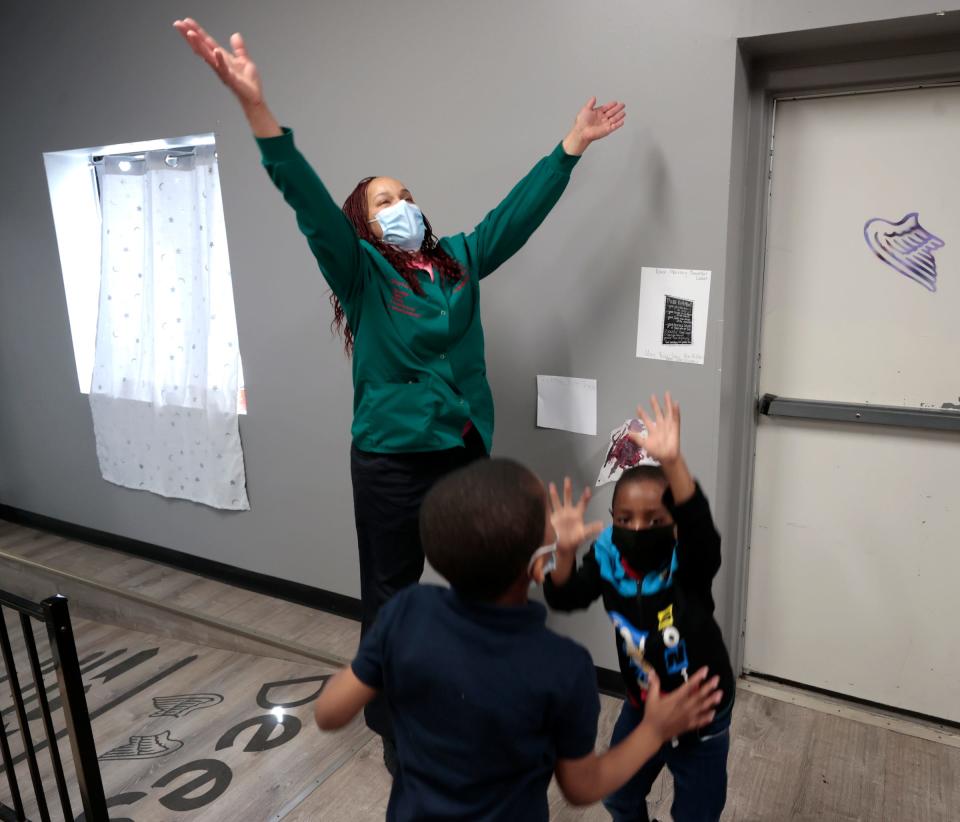Failing child care system costs Michigan economy $3 billion
The lack of affordable and accessible child care caused Michigan parents to frequently miss work or even quit their jobs, according to the just-released Kids Count data profiles developed by the Annie E. Casey Foundation. The data shows that in 2021, 14% of Michigan children younger than 5 lived in a family that made a job change as a direct result of child care problems and expenses.
Some communities were disproportionately affected. While 10% of white children younger than 5 lived with a family member who had to quit, change or refuse a job because of child care, 17% of Black and 16% of Latino children fell into this category nationally.
Nationally, more than half of working parents with infants or toddlers reported disruptions to their workdays due to child care problems, and nearly a quarter had, at some point, been fired for it, the report revealed.

“The country’s lack of affordable and accessible child care short-changes children, costs the American economy billions of dollars a year, stymies women professionally and is pushing families to the breaking point,” a news release about the report said.
The child care problem doesn’t just affect families with kids, and it isn’t just a pandemic problem. “It’s costing us $3 billion annually in lost employment, lost earnings,” said Anne Kuhnen, Kids Count policy director in Michigan. “We know that this is not just a temporary problem,” she said. “This is long-term underinvestment in our child care infrastructure.”
More: Michigan's child care subsidy program will be audited after reporting reveals flaws
More: US child population shrinks to record low, sparking concerns about future
Losing full-time, year-round jobs
In the most recent data, Michigan saw a 23% increase in the percentage of children living in families where no parent had full-time, year-round employment. Now, nearly a third of families are in this situation.
Nationally, 29% of children live with parents who lack secure employment. That can pose a problem when child care for an infant costs more than in-state college tuition in 34 states and the District of Columbia, the report authors note.
The average cost to keep an infant in center-based care ranges from $663 per month in Menominee County to more than $1,200 in Washtenaw County.
Though federal money is in place to help families pay for child care, the Child Care and Development Block Grant reaches only about 10% of eligible kids in Michigan, according to the First Five Years Fund, a bipartisan advocacy group focused on early learning.
When child care is broken, women are the ones to suffer
Parents who couldn’t find child care that worked with their schedules or commutes were among those who had to give up jobs, and the majority of them were women. Women are up to eight times more likely than men to experience negative employment consequences related to caregiving responsibilities, according to the Michigan League for Public Policy’s news release.
Women are also much more likely to be the underpaid child care workers suffering on the other end of this faltering industry: 94% of child care workers are women, and their pay is lower than that of 98% of all professions.

Median national pay for child care workers was less than $14 an hour in 2022, below the median compensation for workers in retail and customer service. Other sources put that figure even lower, at less than $12 an hour. More than 60% of child care workers reported struggling to pay their own food and utility bills the previous month, according to the report.
“These are predominantly women of color, whose wages are currently pretty misaligned with the expertise that they're bringing with, with the skills they have, as well as, frankly, their value to families and to young children and to the economy,” Kuhnen said. “I think that that was a very important piece of the report, too, is it's not just about families and our economy, but also the workers themselves.”
More: Child care subsidy snafus leave providers unpaid and parents without options
More: Michigan child care workers were unprepared for kids' post-pandemic mental health crisis
Michigan ranked 32nd nationally for child well-being
The Kids Count Data Book presents state and national data from 16 indicators in four domains: economic well-being, health, education, and family and community. That allows for state-by-state comparison and ranking.
Child well-being indicators put Michigan in 32nd place — unchanged from last year, but a three-spot drop from the year before.
Michigan had a bottom-half performance in every category. Economic well-being indicators landed it 32nd in the nation based on factors including the percentage of children living in poverty (18%) and the percentage of children living in households with a high housing cost burden (a full quarter).
Michigan declined in its performance on three of the four indicators of well-being in the health category and stayed steady on the last. At number 26 in the nation, this category was the closest the state came to reaching the middle of the pack.
Education, as in previous years, proved abysmal; Michigan ranked 42nd in the country and fared worse on three of the four metrics compared with last year’s data release. It managed to improve on several measures of family and community well-being, most notably the percentage of children living in high-poverty areas, which declined from 17% to 11%.
Three things that could improve the child care situation
The Annie E. Casey Foundation made three recommendations in its report to help the child care system transition from floundering to flourishing.
It urged more investment at the local, state and federal levels, including by reauthorizing funds for the Child Care and Development Block Grant and increasing funding for public pre-K and Head Start.
It suggested improving the infrastructure for home-based child care, first by lowering the barriers to entry by increasing access to startup and expansion capital. And it called on Congress to expand a federal program that supports student parents.
Gov. Gretchen Whitmer has been working to ameliorate child care troubles in Michigan. She announced pre-K for all 4-year-olds, and committed funding to startup and expansion grants for child care entrepreneurs.
Kuhnen says that while state leaders have prioritized child care through recent investments, more should be done. “We’re not currently funding the cost of child care at its true costs, and at the cost that includes a living wage for early childhood workers,” she said.
Jennifer Brookland covers child welfare for the Detroit Free Press in partnership with Report for America. Make a tax-deductible contribution to support her work at bit.ly/freepRFA. Reach her at jbrookland@freepress.com.
This article originally appeared on Detroit Free Press: Failing child care system costs Michigan economy $3 billion

